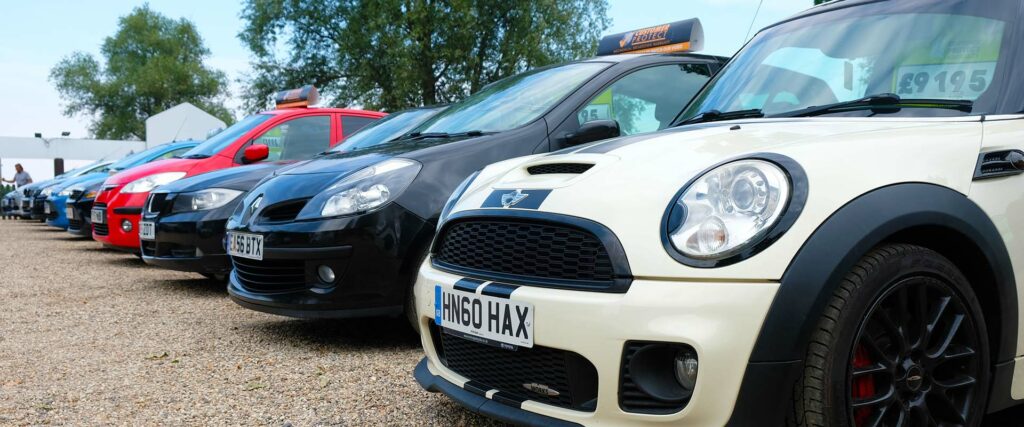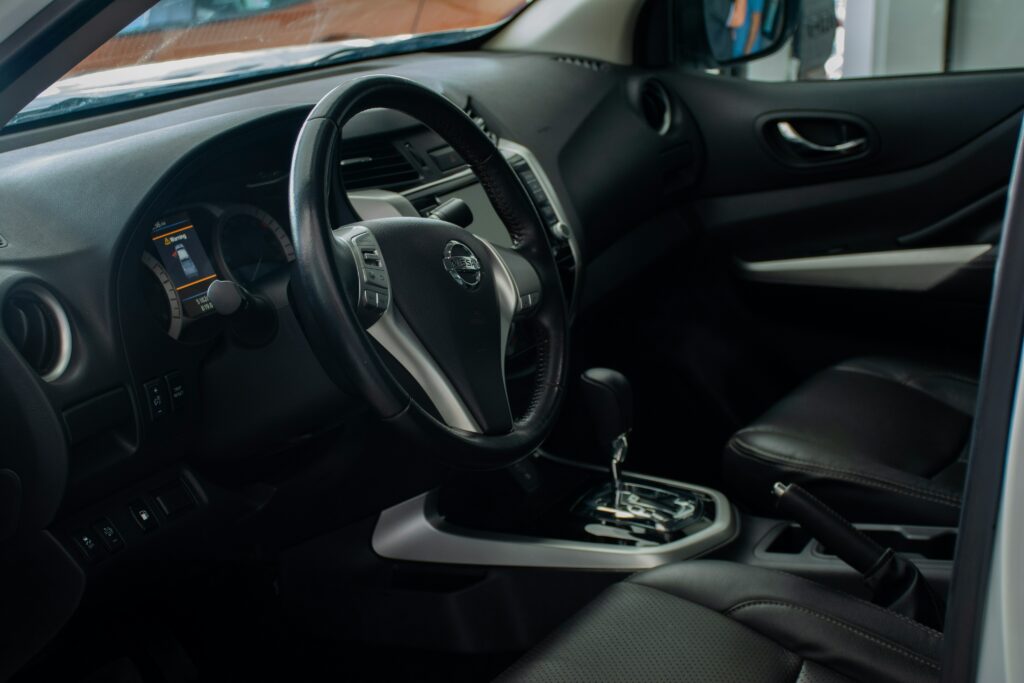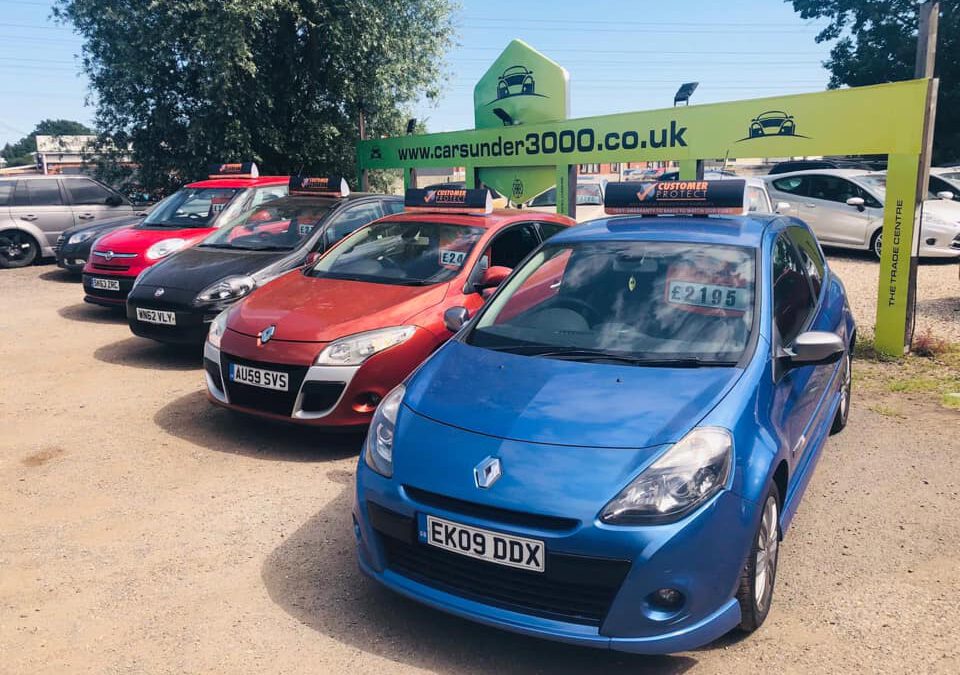When it comes to buying a used car, finding one you can trust is essential to ensure reliability and safety on the road. But with so many options available, it can be difficult to know where to start, what to check for, and how to secure the best deal.
At Cars Under £3000, we’re here to make it as simple as possible. In this guide, we’ll walk you through 10 expert tips for purchasing a used car that will help you drive away with confidence.
1. Set a Realistic Budget
Before you start looking for a car, it’s important to establish a clear and realistic budget. It’s easy to get caught up in the excitement of a great deal, but understanding the full cost of ownership is fundamental. When budgeting, consider the purchase price, but also additional expenses such as:
- Insurance: Your premium will depend on factors like the car’s make, model, and age.
- Taxes: Ensure you’re aware of any road tax or fees you may need to pay.
- Fuel and Maintenance: Factor in regular fuel costs and any potential maintenance or repairs that may occur.
A useful guideline is to aim for total car expenses (including financing, insurance, fuel, and maintenance) to remain within 10-15% of your monthly income. This will keep your finances in check while ensuring you get the most value from your purchase.
2. Research Vehicle Reliability
Reliability is one of the most important factors when buying a used car. Certain makes and models are known for their durability and long lifespan, making them excellent options for used car buyers. Popular sources like What Car? provide detailed reliability ratings and reviews.
Some of the most reliable car brands for used vehicles include:
- Toyota/Lexus
- Honda
- Mazda
- Kia
- Suzuki
By focusing on these brands, you’re more likely to purchase a car with a solid track record, saving you from expensive repairs in the future.
3. Obtain a Vehicle History Report
A vehicle history report will tell you if the car has been involved in any accidents, how many owners it has had, and whether it has a clean title. Services like HPI Check provide thorough reports for a small fee.
Make sure the Vehicle Identification Number (VIN) matches the car’s documents and history report. A clean history report is an important indicator of a trustworthy vehicle.

4. Have a Professional Mechanic Inspect the Car
Before finalising your purchase, it’s highly recommended to have a professional mechanic inspect the vehicle. Even if the car appears to be in good condition, a mechanic can identify potential issues that might not be obvious. They will assess key mechanisms such as the engine, transmission, suspension, and brakes to ensure everything is functioning as it should.
5. Inspect the Car Yourself
While having a mechanic inspect the car is important, you should also conduct your own inspection. Here’s what to check:
- Body Panels: Ensure the car’s body panels have a uniform colour and check for signs of repainting, which could indicate past accidents.
- Rust: Look for rust, particularly around the wheel arches, sills, and under the car’s undercarriage.
- Panel Gaps: Uneven gaps between panels could suggest structural damage or poor repairs.
- Exterior Condition: Take note of any dents, scratches, or scuff marks that could indicate prior damage.
6. Take a Test Drive
A test drive is your opportunity to evaluate the car’s performance in real-world conditions. It’s not just about how the car feels on the road, but also how it performs in various situations. Pay attention to the following during your test drive:
- Brakes: Listen for any unusual sounds or vibrations when applying the brakes. They should feel smooth and responsive.
- Suspension: A good suspension should provide a smooth ride without any unusual clunks or rattles.
- Handling: The steering should feel responsive and aligned. Any pulling or vibrations could indicate issues with the alignment or suspension.
Drive the car on different types of roads (main roads, local streets, etc.) to get a complete sense of its performance.
7. Check the MOT History and Service Records
For cars over three years old, checking the MOT history is a must. The MOT certificate reveals any past failures and advisory notes that may indicate potential issues. Service records also show how well the car has been maintained over time.
Regular service history is a good sign that the car has been well looked after. Look for documentation that shows the car has been regularly serviced according to the manufacturer’s guidelines.
8. Verify the Car’s Mileage
Mileage is an important factor in assessing the overall condition of the car. Generally, the lower the mileage, the better the condition, but this isn’t always the case. A car with very low mileage for its age could indicate that it has been sitting idle, which could lead to certain components needing attention.
Verify that the mileage is consistent with the car’s age and condition. If the mileage seems unusually low or high, it could be worth asking the seller for an explanation.

9. Ensure All Documentation Is in Order
Before making the final decision, ensure that all paperwork is complete and authentic. This includes:
- V5C Registration Document: Check that the registration document is in the seller’s name and that all details match the car.
- MOT Certificates: Ensure the car has a valid MOT certificate and check the history for any failures.
- Service Records: Confirm that the service history is available and up to date.
Double-check the Vehicle Identification Number (VIN) and make sure it matches the number on the registration document, the engine, and the chassis.
10. Negotiate the Price
Once you’ve completed your inspection and are satisfied with the car, it’s time to negotiate the price. Research the car’s market value based on its make, model, age, and condition using websites like Autotrader or Parkers. If you’ve found any issues during your inspection, use them to negotiate a better price.
Why Choose a Used Car?
One of the main advantages of purchasing a used car is avoiding the steep depreciation that new cars face. In the first three years, a new car can lose up to 50% of its value. By buying used, you get a vehicle that’s often still in great condition but without the high price tag of a new car.
At Cars Under £3000, we offer a wide selection of reliable and affordable used cars that fit every budget. We thoroughly inspect every vehicle in our inventory to ensure quality and reliability, so you can drive away happy with your new car.
Final Thoughts
Buying a used car is an investment, and it’s important to approach the process with careful thought. By following these 10 tips, you can make an informed decision and purchase a reliable vehicle that suits you. If you’re looking for an affordable used car in Essex, Cars Under £3000 is here to help. Our team is ready to guide you through the car-buying journey, providing transparency and support every step of the way.
Browse our selection today and discover the perfect car for you!

